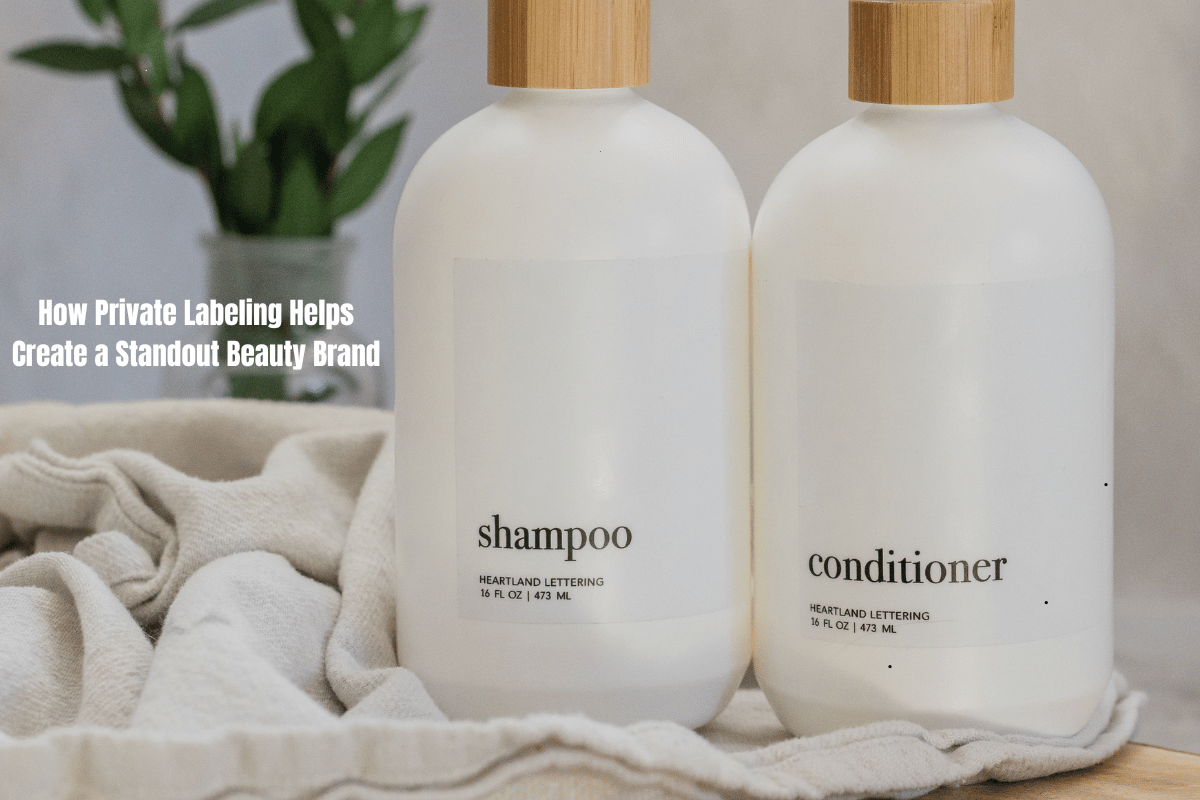How Private Labeling Helps Create a Standout Beauty Brand
The beauty industry is booming, with new brands launching every year. Standing out in such a competitive market is not easy. Considering this, if any business is developing high-quality products from scratch, it takes time, money, and expertise. That’s where private labeling comes in.
It allows beauty brands to create their own product lines without having to handle manufacturing. This strategy enables them to focus on other aspects, like marketing, customer experience, and brand identity. By the way, many successful beauty brands have built their reputations by making the most of this strategy.
That said, let’s explore in this article how private labeling helps build a strong, recognizable beauty brand. Dive in!
What Is Private Labeling?
It is the process when a company sells products made by a third-party manufacturer under its own brand name. In the beauty industry, this includes products like skincare, makeup, hair care, and body care.
Instead of investing in product development and manufacturing facilities, brands partner with manufacturers who already have the expertise and infrastructure. For example, one such manufacturer is Rainshadow Labs, which produces high-quality products. It develops premium Rainshadow Labs Private Label Shampoo, toners, serums, moisturizers, etc. Moreover, their FDA-registered and ISO-certified facilities guarantee that every product meets strict safety standards.
They allow brands to customize:
- Ingredients and formulations.
- Packaging and labeling.
- Product names and descriptions.
This approach helps brands create a consistent and recognizable product line without the high costs and risks of in-house manufacturing.
Benefits of Private Labeling for Beauty Brands
This procedure has become a game-changer for beauty brands looking to stand out in a competitive market. It offers a range of benefits. Have a look!
1. Faster Reach to Market
Launching a new product from scratch can take months or even years. Developing a formula, testing it, and securing manufacturing facilities is time-consuming and expensive.
Private labeling speeds up this process. Since manufacturers already have established formulas and production lines, brands can bring products to market in weeks instead of months.
Additionally, with existing formulations ready for production, brands can quickly adjust to market trends and customer demands. Shorter lead times also lead to faster revenue generation, helping them stay competitive and respond swiftly to changing beauty trends.
2. Cost Efficiency
Manufacturing beauty products in-house requires large investments in equipment, materials, and labor. Research and development (R&D) costs alone can be significant.
However, private labeling eliminates many of these expenses as:
- No need to invest in manufacturing equipment.
- Lower production costs due to established manufacturing facilities.
- Reduced labor and staffing expenses.
With lower production costs, brands can allocate more resources to:
- Marketing and influencer partnerships.
- Packaging design and product promotion.
- Customer service and loyalty programs.
Lower costs also allow brands to adjust pricing and offer competitive rates without sacrificing profit margins.
3. High-Quality Products
Partnering with established manufacturers means gaining access to high-quality ingredients and proven formulas. Many manufacturers specialize in specific beauty categories. This ensures that the final product meets industry standards and customer expectations.
Manufacturers follow strict quality control processes, with products tested for both safety and performance before reaching the market.
This process also provides brands access to premium ingredients and innovative formulations that would be difficult to develop independently. Because the manufacturer is experienced, the risk of product failure is significantly reduced.
Ultimately, this allows brands to focus on building customer trust and satisfaction, knowing that their products meet consistent quality standards.
4. Flexibility and Customization
Private labeling allows brands to create products that reflect their identity and target market. While the base formula may already exist, brands can customize it to make it unique.
Customization options include:
- Adjusting ingredients to match customer preferences.
- Designing packaging that aligns with the brand’s aesthetic.
- Offering a variety of product sizes and formats.
For example, a clean beauty brand can develop a skincare line using natural ingredients and eco-friendly packaging. A luxury makeup brand can create sleek, high-end packaging and premium color options.
This flexibility allows brands to differentiate themselves from competitors and appeal to specific customer segments.
Conclusion to Draw
Private labeling has become a powerful tool for building a successful beauty brand. It allows brands to launch high-quality products quickly, reduce costs, and focus on marketing and customer engagement. By customizing formulations and packaging, brands can create a unique identity that resonates with customers.
In a competitive beauty market, this way of production provides the foundation for a brand to grow, stand out, and build customer loyalty. Eventually, a strong brand identity combined with consistent product quality is the key to long-term success.







